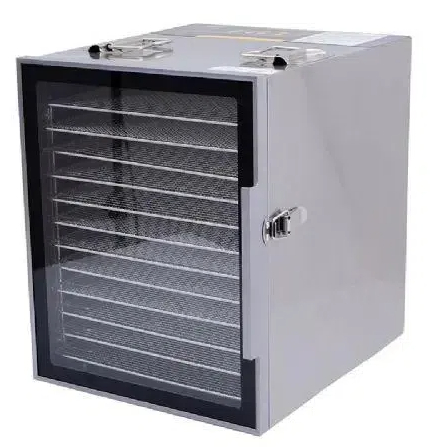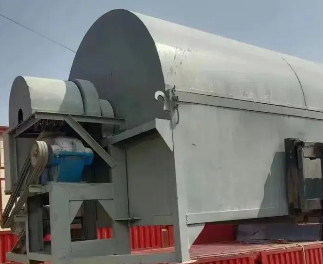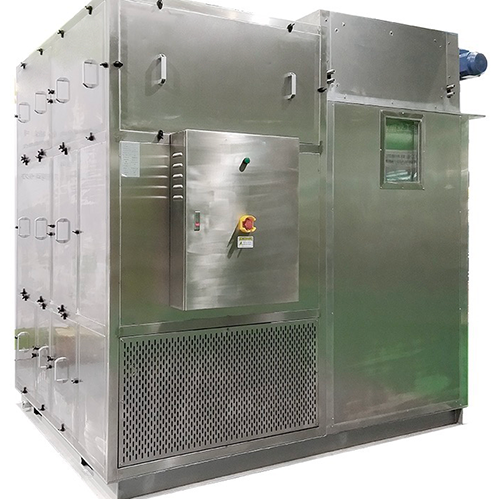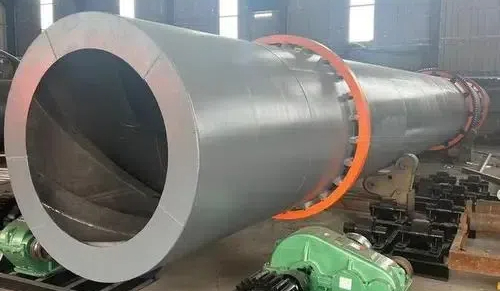
Content Menu
● Understanding Food Drying
● The Role of Dryers in Food Processing
● What is a Heat Pump Dryer?
● How Heat Pump Dryers Work
● Energy Efficiency of Heat Pump Dryers
● Benefits of Using Heat Pump Dryers for Food Processing
● Applications of Heat Pump Dryers in Food Processing
● The Future of Heat Pump Dryers in Food Processing
● Conclusion
● Frequently Asked Questions
>> 1. What is the main advantage of heat pump dryers?
>> 2. Can heat pump dryers be used for all types of food?
>> 3. How do heat pump dryers compare to traditional dryers in terms of cost?
>> 4. Are heat pump dryers environmentally friendly?
>> 5. What types of food benefit most from heat pump drying?
In the world of food processing and preservation, the method of drying food is crucial. As a leading manufacturer of food drying machines in China, we understand the importance of energy efficiency in our products. This article will explore how heat pump dryers save energy compared to regular dryers, focusing on their application in food drying. We will delve into the technology behind heat pump dryers, their benefits, and why they are becoming the preferred choice for food manufacturers and wholesalers.

Understanding Food Drying
Food drying is a method of food preservation that removes moisture from food, inhibiting the growth of bacteria, yeast, and mold. This process not only extends the shelf life of food but also concentrates flavors and nutrients. Traditional drying methods include sun drying, air drying, and using conventional ovens or dehydrators. However, these methods can be inefficient and may not provide the desired quality of dried food.
The Role of Dryers in Food Processing
In commercial food processing, dryers play a vital role. They are used to produce dried fruits, vegetables, herbs, and meats. The choice of dryer can significantly impact the quality of the final product, energy consumption, and operational costs. This is where heat pump dryers come into play.
What is a Heat Pump Dryer?
A heat pump dryer is a type of drying machine that uses a heat pump to transfer heat from the environment to the drying chamber. This technology allows for lower drying temperatures, which is particularly beneficial for preserving the quality of sensitive food products. Unlike traditional dryers that generate heat through combustion or electrical resistance, heat pump dryers recycle heat, making them more energy-efficient.
How Heat Pump Dryers Work
Heat pump dryers operate on the principle of thermodynamics. They consist of three main components: the evaporator, the compressor, and the condenser.
1. Evaporator: The evaporator absorbs heat from the surrounding air. As the air passes over the evaporator coils, moisture is removed, and the air is cooled.
2. Compressor: The compressor then compresses the refrigerant, raising its temperature and pressure. This process allows the refrigerant to carry more heat.
3. Condenser: Finally, the hot refrigerant passes through the condenser, where it releases heat into the drying chamber, warming the air and facilitating the drying process.
This cycle continues, allowing the dryer to maintain a consistent temperature while using significantly less energy than traditional dryers.

Energy Efficiency of Heat Pump Dryers
One of the most significant advantages of heat pump dryers is their energy efficiency. Here are several ways they save energy compared to regular dryers:
1. Lower Operating Temperatures: Heat pump dryers operate at lower temperatures, which reduces energy consumption. This is particularly important for drying sensitive foods that can be damaged by high heat.
2. Heat Recovery: These dryers recycle heat, meaning they use the heat generated during the drying process to continue drying the food. This reduces the need for additional energy input.
3. Reduced Drying Time: By maintaining optimal humidity and temperature levels, heat pump dryers can reduce drying times, leading to lower energy costs over time.
4. Less Energy Waste: Traditional dryers often lose a significant amount of heat to the environment. Heat pump dryers minimize this waste, making them more efficient.
5. Longer Lifespan: The gentle drying process of heat pump dryers can lead to less wear and tear on the machine, resulting in lower maintenance costs and longer operational life.
Benefits of Using Heat Pump Dryers for Food Processing
In addition to energy savings, heat pump dryers offer several other benefits for food processing:
1. Quality Preservation: The lower drying temperatures help preserve the color, flavor, and nutritional value of food products. This is particularly important for high-quality dried fruits and vegetables.
2. Versatility: Heat pump dryers can be used for a wide range of food products, including fruits, vegetables, meats, and herbs. This versatility makes them an excellent choice for food manufacturers.
3. Environmentally Friendly: By using less energy and reducing waste, heat pump dryers are a more sustainable option for food processing. This aligns with the growing demand for environmentally friendly practices in the food industry.
4. Cost-Effectiveness: While the initial investment in a heat pump dryer may be higher than that of a traditional dryer, the long-term savings in energy costs and maintenance make them a cost-effective choice.
Applications of Heat Pump Dryers in Food Processing
Heat pump dryers are increasingly being adopted in various food processing applications. Here are some examples:
1. Dried Fruits: Heat pump dryers are ideal for drying fruits like apples, apricots, and bananas. The gentle drying process helps retain their natural sweetness and color.
2. Vegetable Drying: Vegetables such as carrots, peas, and bell peppers can be dried efficiently using heat pump technology, preserving their nutrients and flavor.
3. Herbs and Spices: The low-temperature drying capability of heat pump dryers is perfect for herbs and spices, ensuring that their essential oils and flavors are preserved.
4. Meat Drying: For manufacturers producing dried meats, heat pump dryers provide a controlled environment that minimizes the risk of spoilage while ensuring a high-quality product.
The Future of Heat Pump Dryers in Food Processing
As the food industry continues to evolve, the demand for energy-efficient and sustainable drying solutions is on the rise. Heat pump dryers are at the forefront of this trend, offering innovative technology that meets the needs of modern food processing. With advancements in heat pump technology, we can expect even greater efficiency and performance in the future.
Manufacturers are increasingly recognizing the importance of energy efficiency not only for cost savings but also for environmental responsibility. As regulations around energy consumption become stricter, heat pump dryers will likely become the standard in food processing facilities.
Conclusion
Heat pump dryers represent a significant advancement in food drying technology. Their energy efficiency, quality preservation, and versatility make them an excellent choice for food manufacturers and wholesalers. As the demand for sustainable and cost-effective food processing solutions continues to grow, heat pump dryers are poised to become the standard in the industry.

Frequently Asked Questions
1. What is the main advantage of heat pump dryers?
The main advantage is their energy efficiency, as they operate at lower temperatures and recycle heat, reducing energy consumption.
2. Can heat pump dryers be used for all types of food?
Yes, heat pump dryers are versatile and can be used for a wide range of food products, including fruits, vegetables, meats, and herbs.
3. How do heat pump dryers compare to traditional dryers in terms of cost?
While the initial investment may be higher, heat pump dryers save money in the long run through lower energy costs and reduced maintenance.
4. Are heat pump dryers environmentally friendly?
Yes, they are more sustainable as they use less energy and reduce waste compared to traditional drying methods.
5. What types of food benefit most from heat pump drying?
Foods that are sensitive to heat, such as fruits and herbs, benefit the most from heat pump drying due to the preservation of flavor and nutrients.












